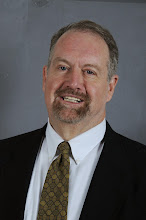William Shakespeare shuffled off his mortal coil 400 years ago this month (April 23 is the observed date), and while his plays remain as ubiquitous as ever, their presentation has certainly evolved. As concerns about the representation of different races, genders and perspectives have embroiled Hollywood and mass media, artists have continued to look to the Bard to examine changing times and reach wider audiences.
This year has already brought one Hamlet starring a black actor — Paapa Essiedu, who plays the character as a modern graffiti artist in the Royal Shakespeare Company's current production, in the playwright's native Stratford-upon-Avon — and another, at Baltimore's Cohesion Theatre Company, depicting the prince of Denmark as a lesbian. Broadway's last Romeo and Juliet, staged in 2013, cast Orlando Bloom and African-American actress Condola Rashad as the doomed young lovers, and its most recent Julius Caesar, in 2005, starred Denzel Washington as Brutus.
"Shakespeare's writing has a malleability and an accessibility like that of no other dramatist," says British film and stage star David Oyelowo. In 2000, long before earning acclaim for his portrayal of Martin Luther King, Jr. in Selma, Oyelowo played Henry VI in the first Royal Shakespeare Company production to cast a black actor as one of the Bard's kings.
"There was a bit of noise about it at first," recalls Oyelowo, who will play Othello this fall in a New York Theatre Workshop staging, opposite Daniel Craig's Iago. "But once we began performing, the focus went back to the plays, which was wonderfully exonerating."
Diversity got an earlier boost in the USA, with the support of producers such as John Houseman — who worked with Orson Welles when the latter directed an all-black Macbeth in Harlem and on Broadway (briefly) in 1936 — and Joseph Papp, founder of the New York Shakespeare Festival, precursor to the Public Theater.
Papp championed what came to be called "non-traditional casting," a practice that gained momentum generally in theater. Through the Shakespeare Festival — which continues as the Public's Shakespeare in the Park series — he offered free performances of landmark productions such as a 1973 King Lear with James Earl Jones in the title role. The great Puerto Rican actor Raúl Juliá, a Shakespeare Festival stalwart, played the sinister Edmund.
That constancy is matched by an adaptability that has accommodated shifting social mores. This year's Shakespeare in the Park series launches May 24 with The Taming of the Shew, helmed by esteemed British director Phyllida Lloyd and featuring an all-female cast. Eustis had wanted to produce the comedy that gave us the wickedly dueling Katherina and Petruchio for years, but says, "A man bringing a woman to heel is not what I wanted to represent on stage ...In Shakespeare's time, it would have been performed by all men. But we're flipping that, which makes it considerably more interesting, and fun."
British-born Zainab Jah, currently acting alongside Lupita Nyong'o in Broadway's acclaimed Eclipsed, joined a list of notable female Hamlets stretching back to Sarah Bernhardt when she played the part last year at Philadelphia's Wilma Theater. Neither Jah's gender nor her race — she is black — fazed young audience members who attended talk-backs after student matinees. "Their teachers had questions," Jah remembers, "but it didn't matter to the students."
Walter points out that "Shakespeare's theater was not naturalistic," a factor that has fueled the imaginations of his interpreters. Brandi Wilkins Catanese, associate professor of performance studies and African-American studies at the University of California at Berkeley, notes that "for a contemporary audience, Shakespeare's plays don't exist through a realistic framework. They're already going outside their frames of reference in terms of plausibility and language...That can put your mind in a more expansive way of thinking about how to materialize the text."
Oregon Shakespeare Festival artistic director Bill Rauch notes that in its 2011 staging of Julius Caesar, the title character was played by a Latina, Vilma Silva. "As you approached the theater, we had a series of banners of world leaders who had been revered and then assassinated," Rauch says. "And they were men and women, black and white and Asian and Latino. Then you watched the play and got Shakespeare's larger truth about the human impulse."
No doubt Shakespeare's works are inspiring other comparisons right now, and more reflection on the circumstances that unite and divide us. "That's why he is the first name we think of when we think of theater," says Walter. "Because all of us want to express ourselves through his words, no matter where we come from or what color or shape or size we are. Shakespeare still speaks for the whole of humanity."

No comments:
Post a Comment